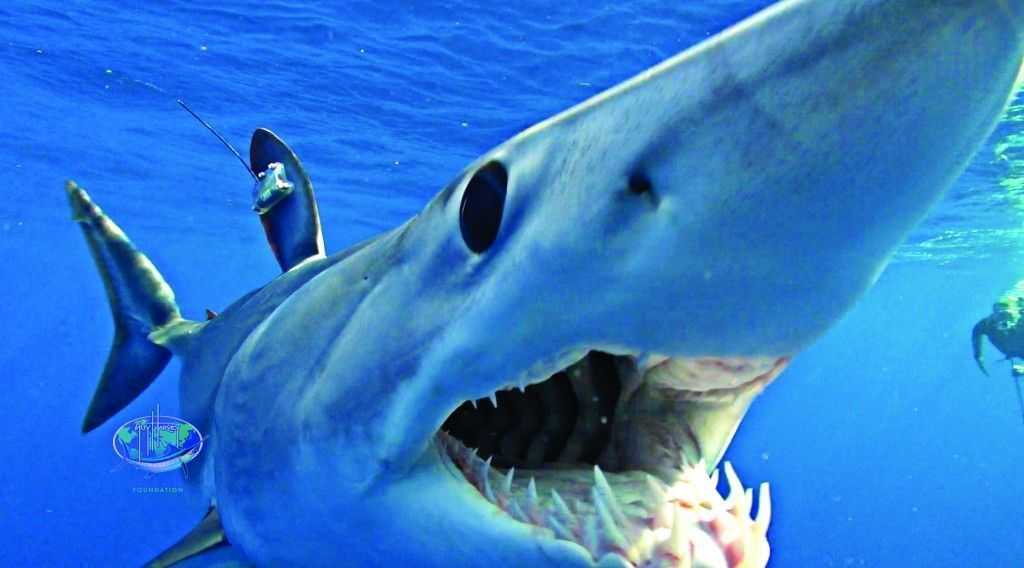Photos courtesy of Guy Harvey Ocean Foundation
Renowned marine wildlife artist and conservationist Dr. Guy Harvey and Sir Richard Branson are calling on individuals and corporations to sponsor sharks that will be tagged and released this spring to gather information on mako and oceanic whitetip sharks.
Dr. Harvey and his foundation, Guy Harvey Ocean Foundation, along with the Guy Harvey Research Institute at Nova Southeastern University, have created an innovative race that allows businesses and individuals to sponsor sharks through the purchase of satellite tags. The tags enable researchers and the public to follow these animals via the Internet as they travel in near real-time.
The Great Shark Race consists of two “divisions”–the Shortfin Mako Shark Division and the Oceanic Whitetip Shark Division. Participants sponsor $5,000 satellite tags, which are affixed to either a mako shark or an oceanic whitetip shark in the Caribbean. Then the shark in each division that travels the farthest in six months wins.
The winning sponsor will receive an incredible prize including diving and or a fishing expedition at the Guy Harvey Outpost in Islamorada, Fla. and Guy Harvey original artwork.
These two species of oceangoing sharks are the focus of a long-term research by the Guy Harvey Research Institute. Both species have been overfished worldwide, with the mako listed as vulnerable to extinction and the oceanic whitetip as critically endangered in the Atlantic.
The race aims to shine a spotlight on the incredible distances these sharks swim and to draw attention to the effects of overfishing. Without the reliable data, fishery managers are hampered in their management and conservation efforts.
Sir Richard Branson is pushing to have all Caribbean nations provide legislated protection for sharks within the next five years as part of the Caribbean Challenge Initiative. So far the Bahamas, Honduras, the BVI and the Cayman Islands have such legislation in place.
The mako shark is a close relative of the white shark and is targeted in commercial long line fisheries for its very tasty flesh. The mako is also a favorite of sport fishermen, as it is known for its incredible speed and ability to jump high out of the water. Few are released because they are good to eat unlike many other shark species.
The oceanic white tip shark is another species known to travel great distances. Some work has already been done in the southern Bahamas. This new tagging effort in the central western Caribbean based in Grand Cayman will greatly add to the data available on this critically endangered species.
For more information, go to www.greatsharkrace.com.
